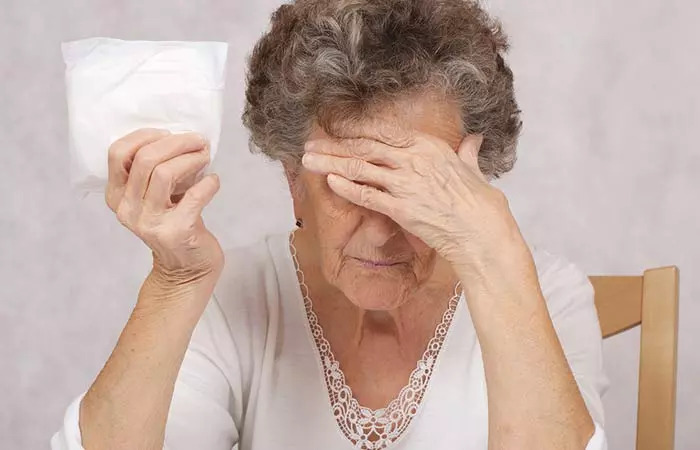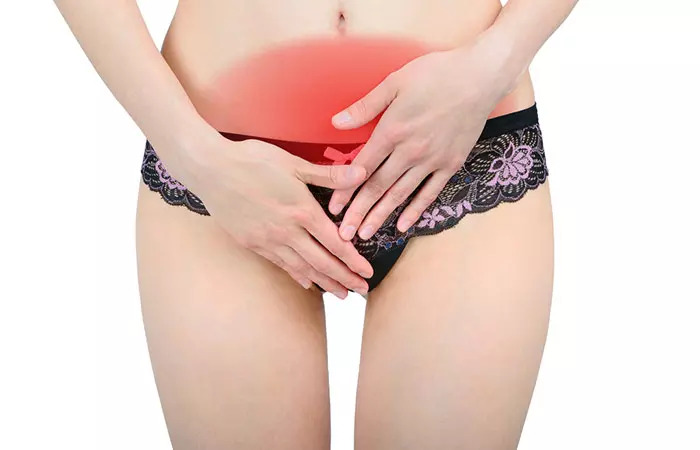Like most parts of our body, the vagina also is a whole system in itself. One, it can take care of its hygiene. Two, it reveals if anything goes wrong in the form of signs and symptoms. It is a self-cleaning, self-lubricating, and self-made organ of the body. However, when there’s an imbalance in the pH, hormone levels, or in the flora of the vagina, it shouts out for help. Read on to know the six ways in which your vagina tells you that it is unhealthy.
1. Foul Odor
The natural smell of your vagina is somewhat musky which, on some occasions might intensify. It is important for you to know that this smell is normal and is not something you should be concerned about even when the odor is strong. At times, it also has a sweet lingering odor, and this is said to be because of what you have just eaten. Gorged a big piece of cake? That’s what is causing that odor. While those are the odors that are not dangerous, what should draw your attention is, if it smells fishy or has a rotten bread-like smell. Fishy smell, particularly after intercourse is a sign that you have bacterial Vaginosis (1). A course of antibiotics prescribed by the doctor can rid you of this fishy smell. However, that bread-like smell is because of excessive yeast that led to a yeast infection. Over-the-counter medication can solve that problem for you.
2. Abnormal Vaginal Discharge
Just like the fact that the vagina has a characteristic odor which is not a sign of a problem, as such, even vaginal discharge is normal. This discharge is normal, provided, the color and consistency are that of egg whites. This discharge occurs as a result of mucus secretions that facilitate adequate lubrication and protection. However, if you observe a difference in the odor, color, amount or consistency of your vaginal discharge that’s when you need to see the gynec (2)If your discharge is of any other color other than white (green, yellow, or gray) it could be because of an infection like vaginitis or Sexually Transmitted Diseases. In the case of an STD, even the partner involved in sex with you should be tested and treated.
3. Itching
If you are struggling to keep your nails from digging through the vaginal walls, this again could mean that there could be an infection. Usually, itch in the vagina could be because of a yeast infection. However, a sexually transmitted infection called Trichomoniasis could also be the cause. If the itch is primarily after sex and you have used some lube, it could be the alcohol in it that’s causing the itch. Sometimes it could also be possible that you are allergic to those latex condoms. Check if these are causing the itch and switch to more natural lubes like coconut oil and latex-free condoms.
4. Dryness
Vaginal dryness is more often than not, a sign of depleting estrogen levels. These hormonal changes are more common outcomes of menopause or aging. However, vaginal dryness could also be caused by those irritants in the chemical-laden products like vaginal washes and sprays. Another potential cause for a decrease in the normal vaginal lubrication could be attributed to the decline in the libido. When you are sufficiently aroused, there is ample amount of lubrication, but during a low sexual drive, you might experience dryness. Vaginal moisturizers or estrogen replacement therapy in cases of menopause is usually prescribed by the doctors to treat this uncomfortable dryness.
5. Bleeding After Intercourse
Women who experience excessive dryness and thinning of the vaginal walls complain of a bleeding vagina after sex. Another reason you could be experiencing this pain and blood after intercourse could be because of inflammation caused by a bacterial or yeast infection. The inflammation can irritate the vaginal walls and make them vulnerable to tear during sex. This can further increase the spread of infection. Also, bleeding after an hour or two after intercourse too could be indicative of a more serious vaginal cancer. If you observe this kind of bleeding, visit a health care provider immediately. Go for a biopsy or other related tests to rule out chances of cancer.
6. Burning Sensation
Itch in the vagina often leads to burning sensation. Severe cases of bacterial infection or candida infection and even a UTI result in burning sensation. Another reason that could lead to burning is the use of lingerie made of synthetic fabrics and synthetic condoms. The vagina is damp most of the time which makes it obligatory for you to use skin-friendly and natural fabric which will efficiently absorb all the excess moisture to keep the area lubricated yet not too damp. Also, avoid in all cases the use of perfumes or other artificial fragrances to enhance the odor of vagina since they can harm the pH and cause burning sensation.
Refraining from practices like douching and using vaginal products that might contain irritants and allergens is the first step you should take if you are experiencing frequent infection and inflammation in your vagina. Plus, a regular visit to the gynecologist and increasing awareness about the dos and don’ts during menses and intercourse is also essential to keep your vagina healthy.
Comment below if you are experiencing any symptoms other than these. It’s time we uninhibitedly discuss and spread awareness among women about vaginal ill health and what could be done about it.
The post 6 Ways Your Vagina Tells You That It’s Unhealthy appeared first on STYLECRAZE.
The article source is here:Style Craze



No comments:
Post a Comment